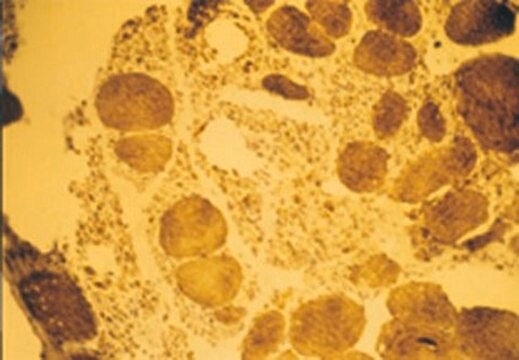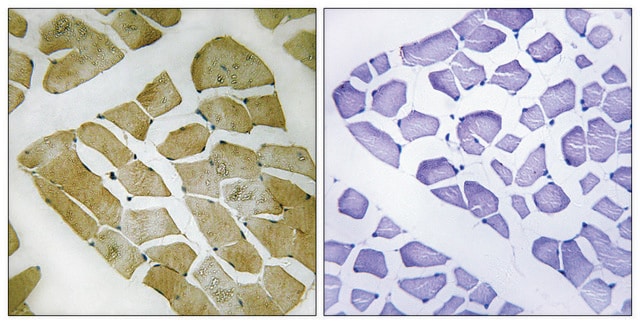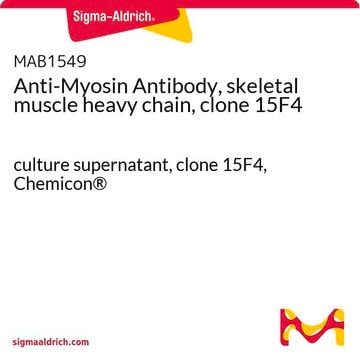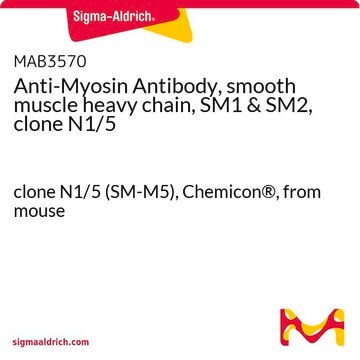SAB4200670
Anti-Myosin (Skeletal, Slow) antibody, Mouse monoclonal
clone NOQ7.5.4D, purified from hybridoma cell culture
Synonyme(s) :
Monoclonal Anti-Myosin (Skeletal, Slow) antibody produced in mouse, CMD1S, CMH1, MPD1, MYHCB, SPMD, SPMM
About This Item
Produits recommandés
Source biologique
mouse
Niveau de qualité
Forme d'anticorps
purified from hybridoma cell culture
Type de produit anticorps
primary antibodies
Clone
NOQ7.5.4D, monoclonal
Forme
buffered aqueous solution
Espèces réactives
sheep, goat, chicken, feline, guinea pig, pig, rabbit, hamster, canine, rat, human, mouse, bovine
Conditionnement
antibody small pack of 25 μL
Concentration
~1 mg/mL
Technique(s)
immunoblotting: 1.25-2.5 μg/mL using Rat skeletal muscle lysate.
immunohistochemistry: 2.5-5 μg/mL using pronase digested, formalin-fixed, paraffin-embedded rabbit tongue/leg sections and Biotin/ExtrAvidin®-Peroxidase staining system.
Isotype
IgG1
Conditions d'expédition
dry ice
Température de stockage
−20°C
Modification post-traductionnelle de la cible
unmodified
Informations sur le gène
human ... MYH7(4625)
Description générale
Immunogène
Application
Actions biochimiques/physiologiques
Forme physique
Informations légales
Clause de non-responsabilité
Vous ne trouvez pas le bon produit ?
Essayez notre Outil de sélection de produits.
Code de la classe de stockage
12 - Non Combustible Liquids
Classe de danger pour l'eau (WGK)
WGK 1
Point d'éclair (°F)
Not applicable
Point d'éclair (°C)
Not applicable
Certificats d'analyse (COA)
Recherchez un Certificats d'analyse (COA) en saisissant le numéro de lot du produit. Les numéros de lot figurent sur l'étiquette du produit après les mots "Lot" ou "Batch".
Déjà en possession de ce produit ?
Retrouvez la documentation relative aux produits que vous avez récemment achetés dans la Bibliothèque de documents.
Les clients ont également consulté
Notre équipe de scientifiques dispose d'une expérience dans tous les secteurs de la recherche, notamment en sciences de la vie, science des matériaux, synthèse chimique, chromatographie, analyse et dans de nombreux autres domaines..
Contacter notre Service technique













